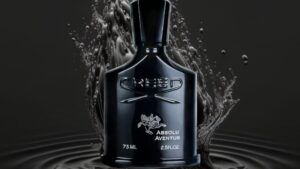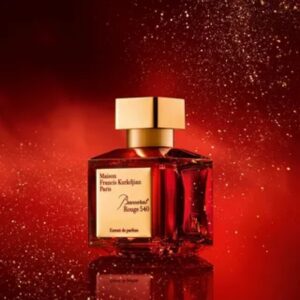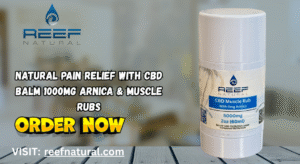
Market Overview
The global skin care products market is experiencing robust growth, driven by heightened consumer awareness of skin health, urbanization, and the influence of social media. Valued at USD 166.35 billion in 2024, the market is projected to reach USD 233.73 billion by 2033, growing at a CAGR of 3.82% during 2025-2033. Key factors propelling this growth include technological advancements, the aging population, and a shift towards preventive skincare solutions.
Study Assumption Years
- Base Year: 2024
- Historical Years: 2019-2024
- Forecast Years: 2025-2033
Skin Care Products Market Key Takeaways
- Market Size & Growth: The market reached USD 166.35 billion in 2024 and is expected to grow to USD 233.73 billion by 2033, at a CAGR of 3.82%.
- Regional Dominance: Asia Pacific leads the market with over 39.8% share in 2024, attributed to rising urbanization and increasing disposable incomes.
- Product Segmentation: Face creams, including skin brightening, anti-aging, and sun protection creams, dominate the product segment.
- Ingredient Trends: There’s a growing preference for natural ingredients over chemical ones, reflecting consumer demand for clean beauty products.
- Gender Insights: Female consumers represent the largest segment, but unisex products are gaining popularity due to inclusive marketing strategies.
- Distribution Channels: Online platforms are rapidly expanding, offering consumers convenience and a wide range of product choices.
- Technological Integration: Advancements in AI and personalized skincare solutions are enhancing product efficacy and consumer satisfaction.
Market Growth Factors
- Rising Awareness of Skin Health
Consumers are becoming more aware of how environmental factors, lifestyle choices, and aging affect their skin health. This growing awareness is fueling a demand for products that provide hydration, sun protection, anti-aging benefits, and solutions for specific issues like acne or hyperpigmentation. In response, manufacturers are stepping up by creating innovative products that cater to these needs, which is helping the market grow.
- Influence of Social Media and Beauty Influencers
Social media platforms like Instagram, YouTube, and TikTok are playing a crucial role in shaping what consumers want. Beauty influencers are sharing their skincare routines and product reviews, inspiring their followers to try out personalized skincare regimens. This trend has really broadened the reach and visibility of skincare products, sparking greater consumer interest and driving market expansion.
- Technological Advancements and Ingredient Innovations
Thanks to advanced technologies like AI and machine learning, we can now analyze individual skin types with precision, leading to tailored product recommendations. Innovations in ingredients, such as biotechnology and nanotechnology, have resulted in the creation of more effective skincare products. These advancements are not only boosting product effectiveness but also meeting the ever-changing demands of consumers.
Request for a sample copy of this report: https://www.imarcgroup.com/skin-care-products-market/requestsample
Market Segmentation
Breakup by Product Type:
- Face Cream
- Skin Brightening Cream: Designed to even out skin tone and reduce pigmentation.
- Anti-Aging Cream: Formulated to reduce signs of aging like wrinkles and fine lines.
- Sun Protection Cream: Provides protection against harmful UV rays.
- Body Lotion
- Mass Body Care: Affordable lotions for daily moisturizing needs.
- Premium Body Care: High-end lotions with specialized ingredients for targeted skin concerns.
- Others: Includes specialized products like firming or cellulite-reducing lotions.
Breakup by Ingredient:
- Chemical: Products formulated with synthetic compounds for targeted skin issues.
- Natural: Products made from natural ingredients, catering to the demand for clean beauty.
Breakup by Gender:
- Male: Skincare products specifically designed for men’s skin.
- Female: Products tailored to address women’s skincare needs.
- Unisex: Products suitable for all genders, promoting inclusivity.
Breakup by Distribution Channel:
- Supermarkets and Hypermarkets: Offer a wide range of skincare products under one roof.
- Beauty Parlours and Salons: Provide professional skincare products and treatments.
- Multi Branded Retail Stores: Retail outlets offering various skincare brands.
- Online: E-commerce platforms offering convenience and a broad product selection.
- Exclusive Retail Stores: Brand-specific stores providing specialized products.
- Others: Includes pharmacies, departmental stores, and direct sales.
Breakup by Region:
- North America (United States, Canada)
- Asia Pacific (China, Japan, India, South Korea, Australia, Indonesia, Others)
- Europe (Germany, France, United Kingdom, Italy, Spain, Russia, Others)
- Latin America (Brazil, Mexico, Others)
Regional Insights
The Asia Pacific region is leading the global skincare products market, boasting a remarkable 39.8% share in 2024. This dominance can be linked to rapid urbanization, rising disposable incomes, and a burgeoning middle class. Consumers in this area are increasingly embracing skincare routines shaped by cultural beauty ideals, along with the growing influence of K-beauty and J-beauty trends.
Recent Developments & News
The skincare industry is also experiencing exciting innovations, especially in personalized skincare solutions. Thanks to advancements in AI and machine learning, brands can now perform detailed skin analyses, which allows them to provide tailored product recommendations. Moreover, the clean beauty movement is gaining traction, driving demand for products that are free from harmful chemicals and resonate with consumers’ preferences for natural and sustainable choices. E-commerce is playing a crucial role in this landscape, giving consumers easy access to a diverse array of skincare products.
Key Players
- Johnson & Johnson Services, Inc.
- The Estée Lauder Companies Inc.
- Unilever PLC/NV
- New Avon Company
- L’Oréal S.A.
- Kao Group
- Colgate-Palmolive Company
- Shiseido Co., Ltd.
- Beiersdorf AG
- The Procter & Gamble Company
- Revlon Consumer Products Corporation
Ask Analyst for Customization: https://www.imarcgroup.com/request?type=report&id=1353&flag=C
If you require any specific information that is not covered currently within the scope of the report, we will provide the same as a part of the customization.
About Us:
IMARC Group is a global management consulting firm that helps the world’s most ambitious changemakers to create a lasting impact. The company provides a comprehensive suite of market entry and expansion services. IMARC offerings include a thorough market assessment, feasibility studies, company incorporation assistance, factory setup support, regulatory approvals and licensing navigation, branding, marketing and sales strategies, competitive landscape, and benchmarking analyses, pricing and cost research, and procurement research.
Contact Us:
IMARC Group
134 N 4th St. Brooklyn, NY 11249, USA
Email: sales@imarcgroup.com
Tel No: +1-631-791-1145




